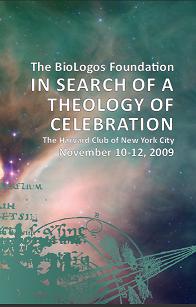
Every Friday, “Science and the Sacred” features an essay
from a guest voice in the science and religion dialogue. This week’s
guest entry was written by Peter Enns. Enns is an evangelical Christian
scholar and author of several books and commentaries, including the
popular Inspiration and Incarnation: Evangelicals and the Problem of the Old Testament
, which looks at three questions raised by biblical scholars that seem to threaten traditional
views of Scripture. This is the second of his multi-part series on an incarnational model of Scripture.
Models are intellectual constructs that try to account for data. They are ways of putting the pieces together and aim to achieve the greatest degree of explanatory power.
We all have models of reality, whether or not we know it. We all hold to hypotheses and theories (which I will take as roughly synonymous with “model”) to explain what we see.
This is also the case for how we interpret the Bible. All of us–from the most ardent Fundamentalist to the most Liberal Christian–construct models to account for the “data.” The models that are the most coherent (account for the most data) wind up being the most persuasive. No model is pure and objectively correct. They are all working hypotheses, and as such are also always up for revision.
One model that accounts for why the Bible behaves the way it does is an incarnational model. Simply put, an incarnational model of Scripture is one that expects Scripture to have an unapologetically thorough human dimension analogous to Jesus’ complete humanity. Both the human dimension of Scripture and the humanity of Jesus are essential to making them what they are.
If Jesus were less than 100% human, or only appeared to be human, or if his humanity is something that could be dispensed with, he would not be Jesus of Nazareth, and his death and resurrection would be non-sensical. Likewise, if the Bible were a book dropped out of heaven with only a tangential, peripheral participation in the human contexts in which it is written–sort of a divine dictation–it ceases being the Word of God.
I stress an incarnational model because so often, whether knowingly or unknowingly, assumptions are made about the nature of Scripture where the human dimension winds up being something of an embarrassment or scandal. True, many willingly embrace some form of an incarnational model when speaking of less problematic things like how the personalities of biblical writers affect what they say or how their ancient world view would lead them to assume that the sun revolves around the earth.
But that is the easy part. A thoroughly incarnational model is also poised to address some of the more difficult problems that other models of Scripture have not done a good job of handling–such as the challenges posed by Darwin and Mesopotamian literature in the nineteenth century which I mentioned in my last post.
A literalist/historicistic model has not done a good job at all of explaining Genesis, and this has become increasingly clear over the last 150 years. When faced as we are with the strong, even overwhelming, evidence for evolution and the presence of Mesopotamian creation and flood stories that look like what we see in Genesis, it is clear that models are needed that do not force these data into existing models that are ill-suited to handle them.
An incarnational model accounts theologically for why the Bible would speak in such ancient, contextual terms and not in modern ones. An incarnational model presumes a book like Genesis to express itself in ancient conventions. And such an ancient, contextual expression is not an embarrassment but an indication of how willing God is to meet us where we are–a willingness seen most clearly in the incarnate Lord.
In his preface to J. B. Phillips’s translation of the New Testament letters into contemporary English, C.S. Lewis articulately addresses this issue of incarnation. Lewis observes that the Greek style of the New Testament betrays writers for whom Greek was not a language at their full command. He writes:
Does this shock us? It ought not to, except as the Incarnation itself ought to shock us. The same divine humility which decreed that God should become a baby in a peasant-woman’s breast, and later an arrested field-preacher in the hands of the Roman police, decreed also that He should be preached in a vulgar, prosaic and unliterary language. If you can stomach the one, you can stomach the other. The Incarnation is in that sense an irreverent doctrine: Christianity, in that sense, an incurably irreverent religion. When we expect that it should have come before the World in all the beauty that we now feel in the Authorized Version we are as wide of the mark as the Jews were in expecting that the Messiah would come as an earthly King. The real sanctity, the real beauty and sublimity of the New Testament (as of Christ’s life) are of a different sort: miles deeper and further in.
Although the topic here is translation, Lewis’s defense of Phillips is easily applicable to our topic. Lewis’s point is that those who take offense at the low Greek style of the New Testament have not come to grips with the incarnation. The same holds for those who take offense at the thoroughly encultured, ancient style of the opening chapters of Genesis and expect from it a more explicitly literal, historical style.

